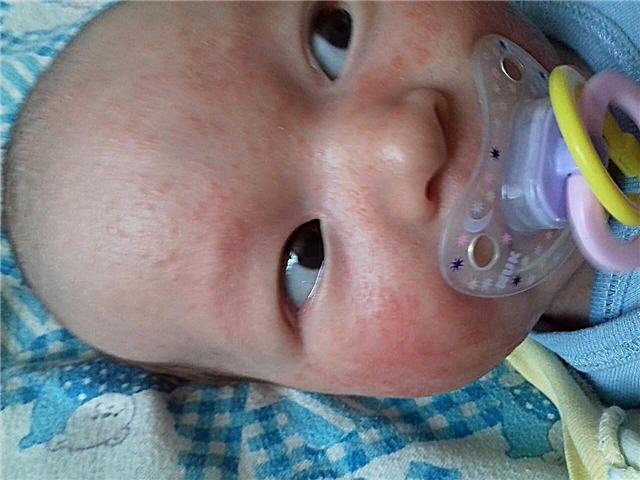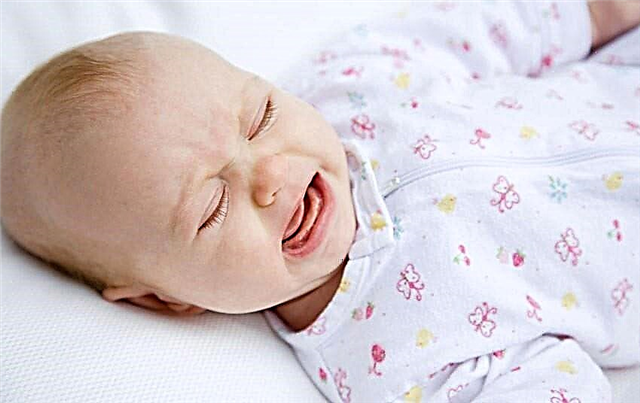
"Nifuroxazide" is an antibacterial drug that is often used for intestinal infections to quickly eliminate diarrhea and other unpleasant symptoms. It does not belong to antibiotics, but is an intestinal antiseptic from the nitrofuran group.
"Nifuroxazide" is not absorbed in the intestine and does not enter the bloodstream, which distinguishes it from antibiotics. It fights only bacteria that are in the intestine, but does not destroy representatives of the normal intestinal microflora. Suspension is one of the forms of "Nifuroxazide" especially for young patients.

Release form
The liquid form of "Nifuroxazide" is sometimes mistakenly called a syrup or solution, but it is actually a sweet suspension that has a yellow color and a banana smell. One bottle contains 90 ml of such a preparation and is supplemented with a double dosing spoon of 2.5 and 5 ml. Next to the name, a second word may sometimes be present, which does not in any way affect the properties of the drug, but only indicates the manufacturer. For example, pharmacies sell Nifuroxazide-Richter, which is produced by the well-known company Gedeon Richter.
In addition to the suspension, the medication is also presented as coated tablets. They are elongated and yellow in color. In addition, the drug is produced by several Russian manufacturers and in capsules, which have a dense yellow gelatin shell, and inside there is a yellow powder.
In solid forms, "Nifuroxazide" is used in patients over 6-7 years old, who can swallow a pill or capsule without any problems.

Composition
The main ingredient of the drug has the same name and is presented in 5 milliliters of suspension at a dose of 220 mg. Banana flavor, sucrose, sodium hydroxide, citric acid and other compounds are the inactive substances of the drug. They may differ from manufacturer to manufacturer, so the exact list, if necessary, should be clarified from the annotation.

Operating principle
The active substance of the suspension has a local (only in the intestinal lumen) antibacterial effect on various microbes that can infect the digestive tract. In particular, the drug affects the flow of pathogens of some important biochemical processes inside the cells, as a result of which the membranes of harmful microorganisms are destroyed, their reproduction slows down, and they die.
"Nifuroxazide" is active against pathogenic Escherichia, Enterobacteriaceae, Salmonella, Staphylococcus and many other microbes. The drug has no effect on pseudomonas and some strains of proteus, as well as on normal intestinal flora.
The medicine does not work on viruses, however, in case of intestinal damage during viral infections, taking a suspension helps prevent possible bacterial complications.

Indications
The main reason for using "Nifuroxazide" is diarrhea, which manifests itself as an intestinal infection. The drug is prescribed for acute illness, colitis, and chronic enterocolitis. It can also be included in the course of therapy for dysbiosis in order to reduce the number of pathogenic microbes and enable beneficial bacteria to develop normally. In addition, "Nifuroxazide" is also used for prophylactic purposes, if the patient has undergone surgery on the digestive tract.
At what age is it allowed?
The suspension is not given to babies in the first month of life. When used in babies who are already 1 month old, a doctor's consultation is definitely needed. It is also not recommended to give the suspension to patients over a year old without a pediatrician's prescription.
Contraindications
"Nifuroxazide" is not used if the child is allergic to this medicine or other nitrofurans. In the case of such hypersensitivity, the medication is immediately canceled. Other contraindications for the use of the suspension include hereditary pathologies in which the absorption of carbohydrates is impaired, for example, glucose and galactose malabsorption.
Side effects
After taking "Nifuroxazide", in some cases, allergic skin reactions may appear, as well as abdominal pain, vomiting or nausea.
Such symptoms, indicating drug intolerance, should be the reason for the immediate withdrawal of the suspension and the choice of another treatment.

How is the reception carried out?
Before each reception of the suspension, the bottle must first be shaken so that the precipitate is mixed with water and other ingredients. The drug can be given to babies before and after meals, since food does not affect its effect in any way. However, it is desirable to use "Nifuroxazide" at the same time intervals. It is allowed to drink the suspension with plain water.
If the child is 2 to 6 months old, he is given 2.5 ml of suspension every 12 hours, but sometimes the dose is increased to 5 ml per dose. For babies from six months to 6 years of age, a single dosage is 5 milliliters, and the frequency of administration is every eight hours. Children over 6 years old are also given medication at 5 milliliters, but already four times a day, that is, at intervals of 6 hours.
The duration of taking liquid "Nifuroxazide" is determined by the doctor. As a rule, the medication is prescribed for a short time (3–7 days) and is immediately canceled after the unpleasant symptoms disappear. If on the second or third day of taking the medicine there is no improvement, you should re-show the little patient to the doctor.

To help "Nifuroxazid" quickly cure infectious diarrhea and at the same time eliminate the symptoms of dehydration, during treatment with a suspension, the child should receive a lot of fluids and, if necessary, rehydration drugs.
It is also important to observe some dietary restrictions, for example, not to give the patient fruits, juices and any foods that are difficult to digest.
Overdose
The manufacturers of such a suspension do not provide any information about the symptoms of an overdose of Nifuroxazide. But, if a child accidentally drinks more medicine than he is allowed by age, it is recommended to flush his stomach and use symptomatic remedies, if required (if the general condition worsens).

Compatibility with other drugs
Since nifuroxazide that has entered the intestine is not absorbed, its effect on the intake of other drugs is unlikely. In a situation where the child is already taking some medications, you need to tell the doctor about this before using the suspension.
Terms of sale and storage
To purchase liquid "Nifuroxazide" in a pharmacy, you must first take a prescription for such a remedy from your doctor. Depending on the manufacturer, one bottle costs 100–300 rubles. The suspension usually has a shelf life of 2 or 3 years. Until it is completed, the drug can be stored at room temperature, hiding it from children in an inaccessible place. Some manufacturers in the instructions for use noted that the medicine from the opened bottle can be used for only 14 days (this point must be specified in the annotation to the purchased drug).

Reviews
There are many positive reviews from doctors and parents about the use of "Nifuroxazide" in liquid form in children. One of the main advantages of the drug is called a quick action, since the effect is observed already several hours after taking the suspension. The advantages of the drug are also called the fact that it is presented as a suspension and does not destroy bacteria that belong to the normal microflora. The price of the medicine is affordable, and side effects are very rare.

Analogs
The most famous analogue of "Nifuroxazide" can be called a drug called "Enterofuril". This medicine has two forms: capsules and suspension, so it is very easy to replace any of the types of "Nifuroxazide" with it. Since the composition and appearance of the drugs are similar, the indications, and also the possible negative effect on the child's body, for such drugs also coincide. In suspension, "Enterofuril" is prescribed even to infants, with the exception of newborn babies.
Instead of Enterofuril, other analogs can also be used, the therapeutic effect of which is also provided by nifuroxazide. These include "Ersefuril", "Ekofuril" and "Stopdiar", as well as "Adisord" and "Mirofuril". Among them there are drugs in suspension, which are more convenient to give to young patients, and drugs in capsules and tablets containing 100 or 200 mg of nifuroxazide. They are used for the same indications and in the same dosages as Nifuroxazide.
For information on what to do if your child has diarrhea or vomiting, see the next video.



